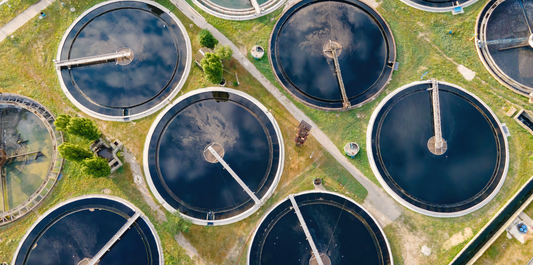Over the past few years, the group of chemicals known as PFAS (Poly- and Perfluoroalkyl substances) has been attracting more attention due to their potentially harmful effects on the environment and public health. These substances are human-made and do not occur naturally. One of their convenient properties is their ability to repel water, grease, dirt, and dust, making them suitable for various applications such as rainwear, pans, or paper for grease and water resistance, as required for a pizza box. However, once released into the environment, they pose a health risk. Let's delve deeper into the subject.
Contaminated water and food
While small doses of PFAS are not necessarily dangerous, they are present in food and drinking water in higher quantities than desired. Potential health effects include liver damage, harm to the immune system, and fertility issues. However, PFAS also have significant impacts on the environment:
Water Pollution
PFAS have been found in drinking water sources worldwide, including rivers, lakes, and groundwater. This contamination can lead to long-term exposure of both humans and animals to PFAS. Soil Contamination: PFAS can bind to soil particles and degrade soil quality. This has consequences for agricultural land and ecosystems where plants and animals reside. Bioaccumulation: PFAS can accumulate in organisms, including fish and other aquatic species. This can increase the risk of poisoning and disrupt ecological systems. Public Health: While the exact long-term health effects of PFAS are still being researched, there is evidence linking high levels of PFAS exposure to health problems.
Further damage
In addition to PFAS, our water contains other harmful substances. Consider, for instance, pharmaceutical residues, excessive fluoride, bacteria, and pesticide residues. A portion of these substances remains in our drinking water. What can be done about it?
Promoting healthy water
With AquaTru's water filter, you can remove 99% of harmful substances, including PFAS, from your tap water. The 4-stage reverse osmosis system thoroughly cleans your water of all contaminants, ensuring optimal water quality and taking care of your body.




